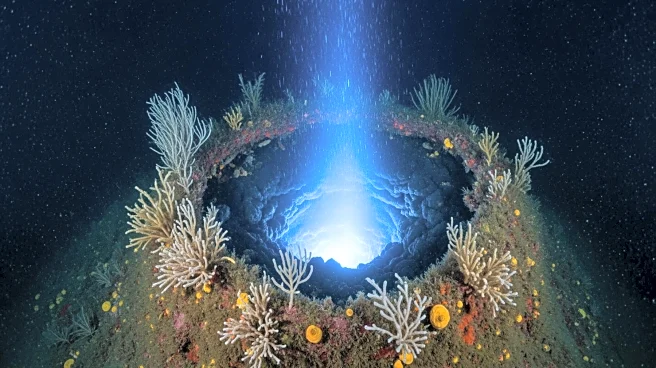What's Happening?
Researchers from the University of Bremen have uncovered microbial life in one of the planet's most alkaline underwater environments, with a pH of 12. Led by Palash Kumawat, the team used lipid biomarkers to study the survival strategies of microbes in this
harsh setting. These organisms metabolize methane and sulfate, drawing energy from minerals and gases rather than sunlight. The study reveals both modern and ancient microbial populations, suggesting a self-contained ecosystem independent of the ocean above. The findings are part of the Cluster of Excellence 'The Ocean Floor -- Earth's Uncharted Interface.'
Why It's Important?
This discovery is significant as it expands the understanding of life in extreme conditions, potentially offering insights into primordial life origins. The ability of these microbes to survive in such environments could inform future research on life's adaptability and resilience. Additionally, the study contributes to the global carbon cycle knowledge, as these microbes play a role in processing carbon and other elements. Understanding these processes may have implications for climate change research and environmental policy.
What's Next?
The research team plans to cultivate these microorganisms in controlled incubators to further study their nutrient acquisition and survival mechanisms. This could lead to advancements in biotechnology and environmental science, offering new ways to harness microbial processes for sustainable practices. The ongoing research may also inspire further exploration of extreme environments on Earth and potentially other planets.
Beyond the Headlines
The study raises ethical and scientific questions about the exploration and potential exploitation of extreme environments. It challenges existing notions of life's limits and may influence future policies on environmental conservation and scientific exploration. The findings could also impact cultural perceptions of life and its origins, prompting discussions on the interconnectedness of ecosystems.
















